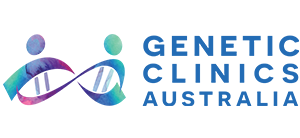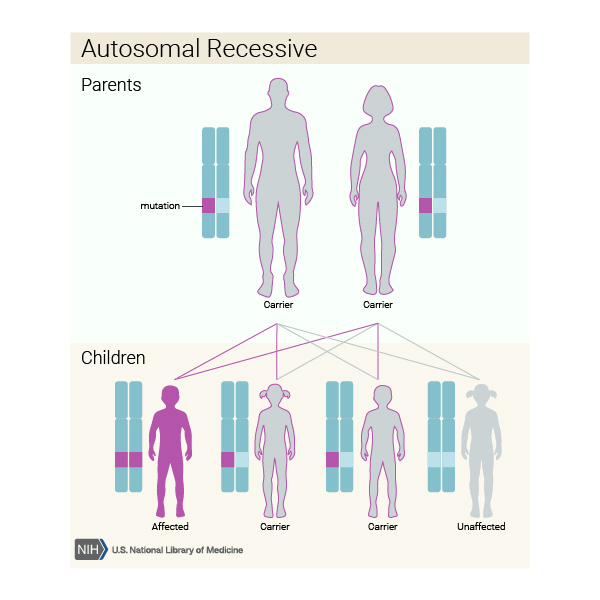Autosomal Recessive Inheritance
An autosomal recessive condition is inherited when both parents are carriers of genetic mutations (faults) in the same gene, which they pass down to their child. These conditions are carried on autosomes, which are the non-sex specific chromosomes, therefore these conditions affect males and females equally.
When both parents are carriers, there is a 1 in 4 or 25% chance of a child inheriting both abnormal genes and therefore being affected with the condition. There is a 50% chance of a child inheriting only one abnormal gene and of being a carrier, like their parents. There is also a 25% chance of the child inheriting both normal genes, and will therefore be unaffected.
Cystic Fibrosis and Tay Sachs disease are examples of autosomal recessive conditions.


